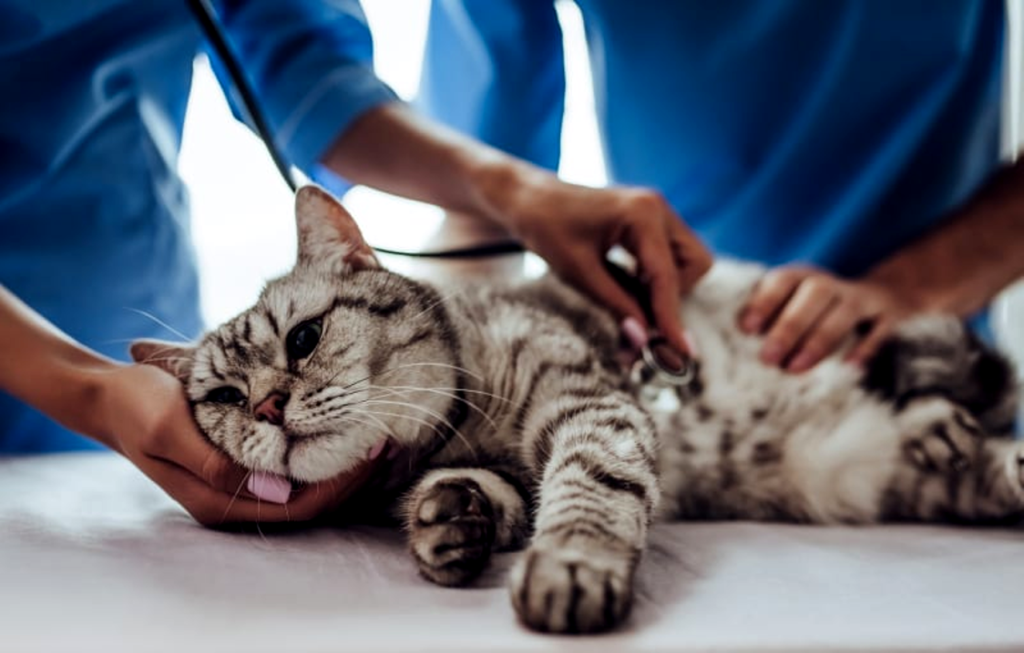
Understanding Common Pet Illnesses: Recognizing Symptoms and Seeking Treatment
When you welcome a furry friend into your home, you become responsible for their well-being. Just like humans, pets can fall ill, and as a pet owner, it’s crucial to recognize the signs of common pet illnesses. In this comprehensive guide, we’ll explore these ailments, their symptoms, and the steps you should take to seek treatment for your beloved companion.
Read More: Common Illnesses That Can Be Spread From Animals to People
Common Pet Illnesses Overview

Understanding the Prevalence
Pet illnesses are more common than you might think. Just like humans, pets can suffer from a range of ailments, from minor issues to severe conditions. As a responsible pet owner, it’s essential to be aware of the most prevalent illnesses.
Why Early Detection is Crucial
Early detection of pet illnesses can make a significant difference in their prognosis. Pets can’t communicate their discomfort in words, so it’s up to you to observe any changes in their behaviour or physical condition.
Recognizing Symptoms
Changes in Behavior
One of the first signs that something might be wrong with your pet is a change in their behaviour. This could include lethargy, aggression, excessive whining, or withdrawal from activities they once enjoyed.
Physical Symptoms
Physical symptoms are often more evident and can include coughing, sneezing, vomiting, diarrhoea, or limping. Pay attention to these signs, as they can provide crucial clues about your pet’s health.
Gastrointestinal Issues
Gastrointestinal problems, such as constipation, bloating, or frequent regurgitation, are common among pets. These issues can be indicative of various underlying conditions.
Skin and Coat Problems
Changes in your pet’s skin and coat, like dryness, hair loss, or rashes, can be symptomatic of allergies, infections, or other issues.
Common Ailments in Dogs

Canine Influenza
Canine influenza, or dog flu, is a contagious respiratory disease that can affect dogs of all ages. Recognizing its symptoms, such as coughing and nasal discharge, is vital for early treatment.
Arthritis
Arthritis is a common ailment in older dogs. Watch for signs like stiffness, difficulty in rising, or reluctance to walk, and consult your vet for management strategies.
Diabetes
Diabetes can affect dogs just as it does humans. Increased thirst, frequent urination, and unexplained weight loss are red flags that should prompt a vet visit.
Heartworm Disease
Heartworm disease is a severe condition that affects dogs through mosquito bites. Signs may include coughing, fatigue, and difficulty breathing.
Common Ailments in Cats

Feline Upper Respiratory Infections
Cats can develop upper respiratory infections with symptoms like sneezing, nasal discharge, and eye discharge.
Urinary Tract Infections
Urinary tract infections can cause discomfort for your cat and may lead to litter box issues or blood in the urine.
Kidney Disease
Kidney disease is prevalent in ageing cats. Look for signs like increased thirst, frequent urination, and weight loss.
Hyperthyroidism
Hyperthyroidism is a common condition in older cats. Symptoms include weight loss, increased appetite, and hyperactivity.
Treatment Options
Veterinary Care
Veterinary care is the foundation of treating pet illnesses. Regular check-ups and prompt visits for any concerning symptoms are essential.
Medications
Many pet ailments can be managed with medications prescribed by your veterinarian. Always follow the prescribed dosage and schedule.
Surgery
In some cases, surgery may be necessary to treat or correct certain conditions. Discuss the options with your vet.
Alternative Therapies
Alternative therapies like acupuncture or physical therapy can complement traditional treatments and enhance your pet’s quality of life.
Preventive Measures
Vaccinations
Vaccinations are essential in preventing some common pet illnesses. Consult your vet to ensure your pet is up-to-date on their vaccinations.
Healthy Diet and Exercise
Maintaining a healthy diet and regular exercise routine can boost your pet’s immune system and overall well-being.
Regular Check-ups
Regular veterinary check-ups can catch potential issues early and ensure your pet’s long-term health.
Environmental Considerations
Environmental factors, such as a clean living space and reduced exposure to toxins, play a role in preventing illnesses.
Supporting Your Pet During Illness
Providing Comfort
Comfort your pet during illness with a cozy resting place, soothing words, and gentle petting.
Dietary Modifications
Your vet may recommend dietary changes to aid in recovery or manage chronic conditions.
Medication Adherence
Administer medications as prescribed by your vet, and monitor your pet’s response.
Emotional Support
Pets thrive on love and attention. Be there for your pet emotionally as they recover.
When to Seek Immediate Help
Life-Threatening Situations
Certain symptoms, such as severe breathing difficulties or profuse bleeding, require immediate veterinary attention.
Emergency Veterinary Care
Know the location and contact information of the nearest emergency veterinary clinic in case of after-hours emergencies.
Read More: The Role of Pet Insurance: Providing Financial Security for Pet Health Care
FAQs
- Can I treat my pet’s illness at home without consulting a vet? It’s always best to consult a veterinarian for proper diagnosis and treatment. Home remedies may not address the underlying cause effectively.
- What vaccinations are essential for my pet’s health? Essential vaccinations vary depending on your pet’s age, species, and lifestyle. Consult your vet for a personalized vaccination schedule.
- How can I make my pet more comfortable during illness? Provide a quiet, comfortable space, offer plenty of water, and follow your vet’s instructions for medication and care.
- Is pet insurance worth it to cover treatment costs? Pet insurance can provide financial assistance in unexpected medical situations. Consider your pet’s needs and your budget when deciding.
- How can I find a reliable veterinarian for my pet? Ask for recommendations from fellow pet owners, read reviews, and schedule introductory visits to ensure a good fit with your chosen vet.
Conclusion
Your pet’s health is a priority, and understanding common pet illnesses is the first step in ensuring their well-being. Regular check-ups, vigilance for symptoms, and a loving, supportive environment can go a long way in keeping your furry friend happy and healthy. Remember, your pet relies on you for their health and happiness. By understanding common pet illnesses and being proactive in seeking treatment, you can provide the best possible care for your furry companion.







